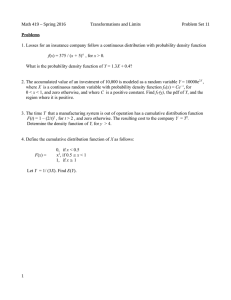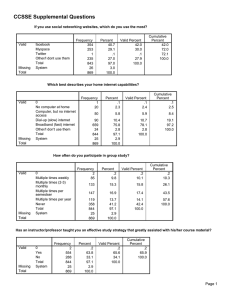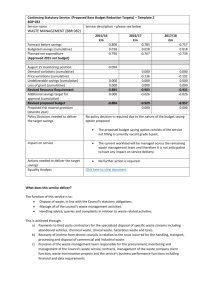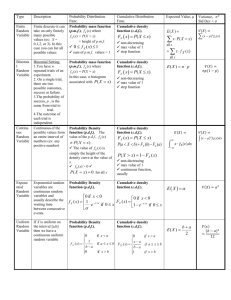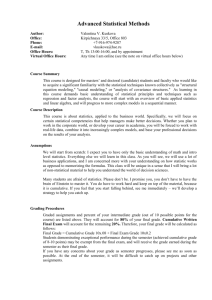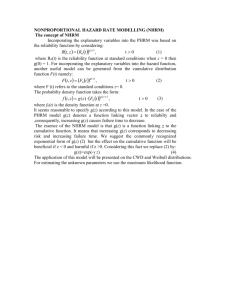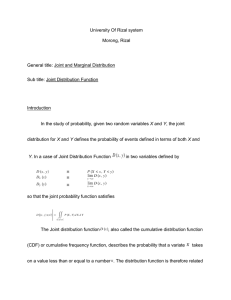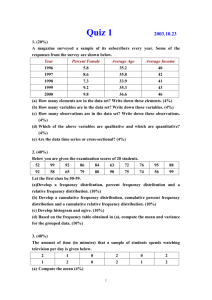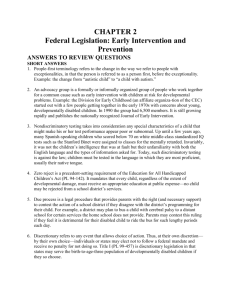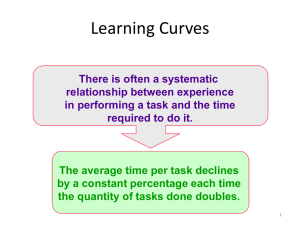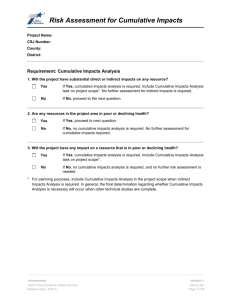Cumulative Sentences Assignment
advertisement
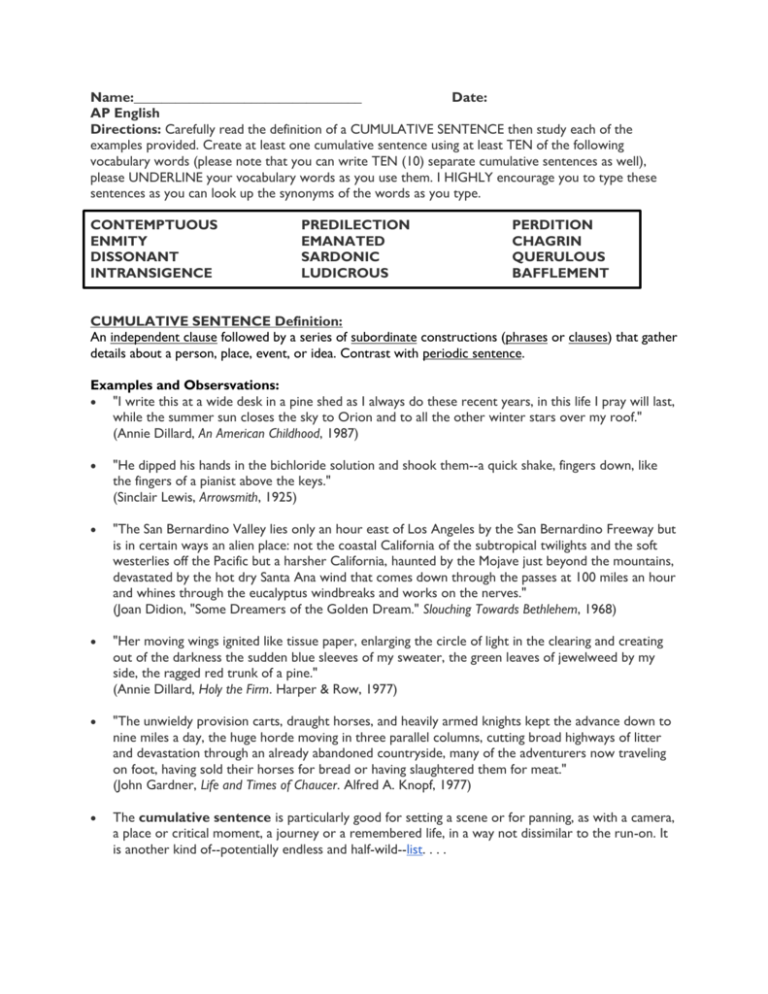
Name:_________________________________ Date: AP English Directions: Carefully read the definition of a CUMULATIVE SENTENCE then study each of the examples provided. Create at least one cumulative sentence using at least TEN of the following vocabulary words (please note that you can write TEN (10) separate cumulative sentences as well), please UNDERLINE your vocabulary words as you use them. I HIGHLY encourage you to type these sentences as you can look up the synonyms of the words as you type. CONTEMPTUOUS ENMITY DISSONANT INTRANSIGENCE PREDILECTION EMANATED SARDONIC LUDICROUS PERDITION CHAGRIN QUERULOUS BAFFLEMENT CUMULATIVE SENTENCE Definition: An independent clause followed by a series of subordinate constructions (phrases or clauses) that gather details about a person, place, event, or idea. Contrast with periodic sentence. Examples and Obsersvations: "I write this at a wide desk in a pine shed as I always do these recent years, in this life I pray will last, while the summer sun closes the sky to Orion and to all the other winter stars over my roof." (Annie Dillard, An American Childhood, 1987) "He dipped his hands in the bichloride solution and shook them--a quick shake, fingers down, like the fingers of a pianist above the keys." (Sinclair Lewis, Arrowsmith, 1925) "The San Bernardino Valley lies only an hour east of Los Angeles by the San Bernardino Freeway but is in certain ways an alien place: not the coastal California of the subtropical twilights and the soft westerlies off the Pacific but a harsher California, haunted by the Mojave just beyond the mountains, devastated by the hot dry Santa Ana wind that comes down through the passes at 100 miles an hour and whines through the eucalyptus windbreaks and works on the nerves." (Joan Didion, "Some Dreamers of the Golden Dream." Slouching Towards Bethlehem, 1968) "Her moving wings ignited like tissue paper, enlarging the circle of light in the clearing and creating out of the darkness the sudden blue sleeves of my sweater, the green leaves of jewelweed by my side, the ragged red trunk of a pine." (Annie Dillard, Holy the Firm. Harper & Row, 1977) "The unwieldy provision carts, draught horses, and heavily armed knights kept the advance down to nine miles a day, the huge horde moving in three parallel columns, cutting broad highways of litter and devastation through an already abandoned countryside, many of the adventurers now traveling on foot, having sold their horses for bread or having slaughtered them for meat." (John Gardner, Life and Times of Chaucer. Alfred A. Knopf, 1977) The cumulative sentence is particularly good for setting a scene or for panning, as with a camera, a place or critical moment, a journey or a remembered life, in a way not dissimilar to the run-on. It is another kind of--potentially endless and half-wild--list. . . . And here is this writer Kent Haruf, writing a cumulative sentence, opening his novel with it, panning the smalltown western landscape of his story: Here was this man Tom Guthrie in Holt standing at the back window in the kitchen of his house smoking cigarettes and looking out over the back lot where the sun was just coming up. (Kent Haruf, Plainsong) (Mark Tredinnick, Writing Well. Cambridge Univ. Press, 2008) "Llanblethian hangs pleasantly, with its white cottages, and orchard and other trees, on the western slope of a green hill; looking far and wide over green meadows and little or bigger hills, in the pleasant plain of Glamorgan; a short mile to the south of Cowbridge, to which smart little town it is properly a kind of suburb." (Thomas Carlyle, The Life of John Sterling, 1851) Cumulative Sentences Defined and Illustrated "The typical sentence of modern English, the kind we can best spend our efforts trying to write, is what we will call the cumulative sentence. The main or base clause, which may or may not have sentence modifiers like this before or within it, advances the discussion or the narrative. The other additions, placed after it, move backward (as in this sentence), to modify the statement of the base clause or more often to explain it or add examples or details to it, so that the sentence has a flowing and ebbing movement, advancing to a new position and then pausing to consolidate it." (Francis Christensen and Bonniejean Christensen, A New Rhetoric. Harper & Row, 1976)
